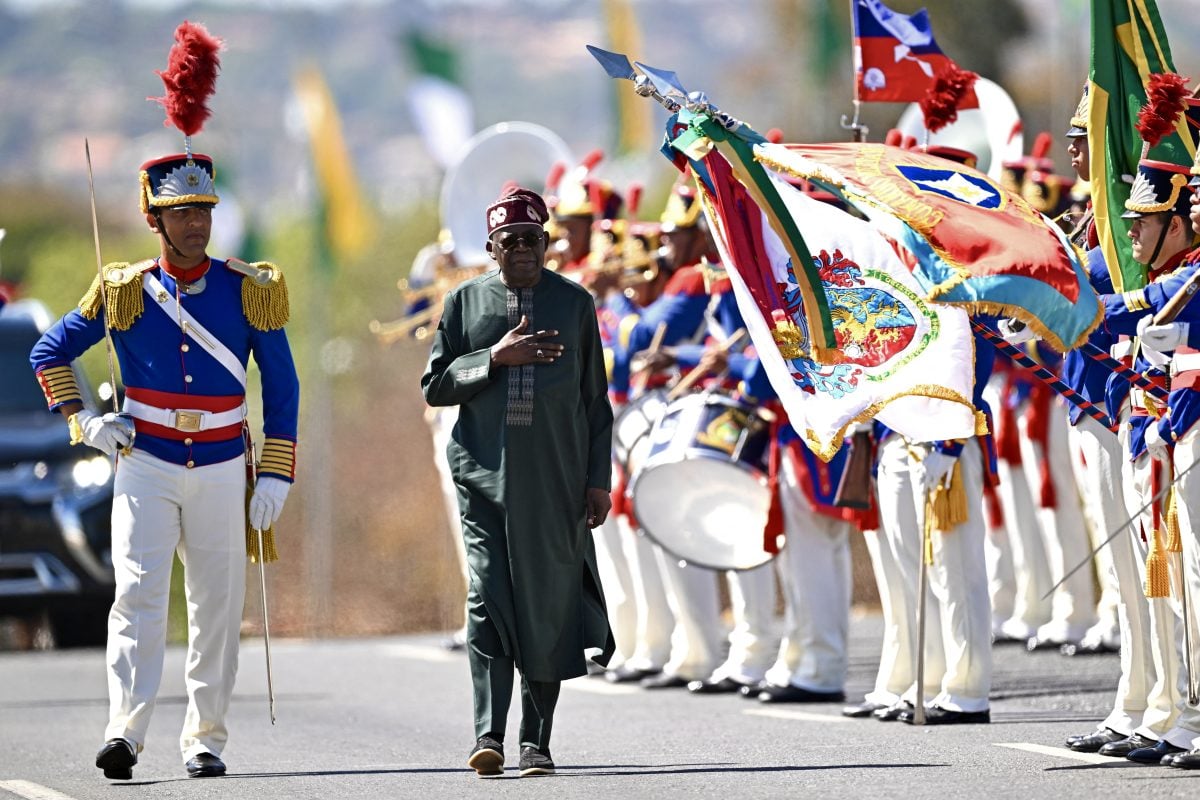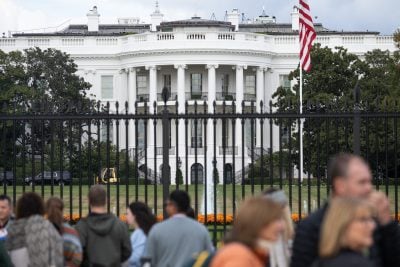The jury is still divided on where the Nigerian economy is headed under President Bola Tinubu and the ruling All Progressives Congress (APC) party. For the government and its supporters, the bitter medicine of the past two years has worked its magic. The patient, once taken for dead, is now rousing, they insist.
“I’m glad to tell you today that the economy is stabilised,” Tinubu said while giving his personal verdict at the presidency in Abuja on September 3. “The bleeding has stopped, haemorrhage is gone; the patient is alive.”
For his opponents meanwhile, the patient is on life support, lying prostrate and near-death. Tinubu is accused of making worse what was already a bad situation under his predecessor, the late Muhammadu Buhari.
What no one appears to doubt is that Tinubu took a series of bold and courageous decision, which his predecessors considered fatal to their political careers, when he decided to end decades of fuel subsidies and float the exchange rate on taking office in 2023. With the subsidies accounting for a third of the budget under his predecessor amid dwindling oil revenue, Tinubu saw the need for radical action to restore credibility to Nigeria.
“By that point, all the poor choices made by past governments had come to a head and tangled state finances,” says Eric Orji, a Lagos-based economist and market analyst. “The only way out was to end the burden of artificially maintaining cheaper fuel prices and exchange rates.”
The debate was about how best to do it: whether to adopt a gradual approach or immediate implementation. Tinubu chose the latter. Critics say there has been an absence of palliatives to soften the impact of the harsh measures. The government has also been criticised for extravagance in the face of national misery. For Taminu Yakubu, a professor of economics and director of Nigeria’s Budget Office, Tinubu’s important policy decisions are already yielding the expected results. Though some bemoaned the devaluation of an “artificially strong naira” by the government, the currency has since clawed back more than 15% of its value, he said in a recent statement. Devaluation also resulted in a surge of Nigeria’s non-oil exports, aiding the administration’s revenue drive and efforts to diversify the economy away from oil dependence.
“A floating currency is not a sign of weakness, it is a tool for national competitiveness,” says Yakubu. “By refusing to prop up the naira with scarce reserves and instead letting market forces work, the Tinubu administration has set the stage for a sustainable, export-driven growth path.”
Nigeria’s re-based gross domestic product (GDP) figures, released in August, revealed a still shrunken economy valued at 373 trillion naira ($248bn), down to number four in Africa – a fall partly due to the devaluation of the naira. But the economy appears to be shaking off its post-pandemic sluggishness at last, growing 3.38% last year and adding another 3.13% in the first quarter, according to the National Bureau of Statistics.
Economic activities are currently dominated by the services sector, with a share of 53%. It is followed by agriculture, with a 26% share; industrial manufacturing comes third with a share of 21.08% of the GDP.
Agriculture remains constrained by a worsening conflict over grazing rights in the rich lands of central Nigeria and by the activities of jihadist insurgents in parts of the northeast and northwest of the country. The insecurity in these regions has contributed to high food price increases, which drove overall inflation to the highest level in 28 years, according to data from the National Bureau of Statistics (NBS).
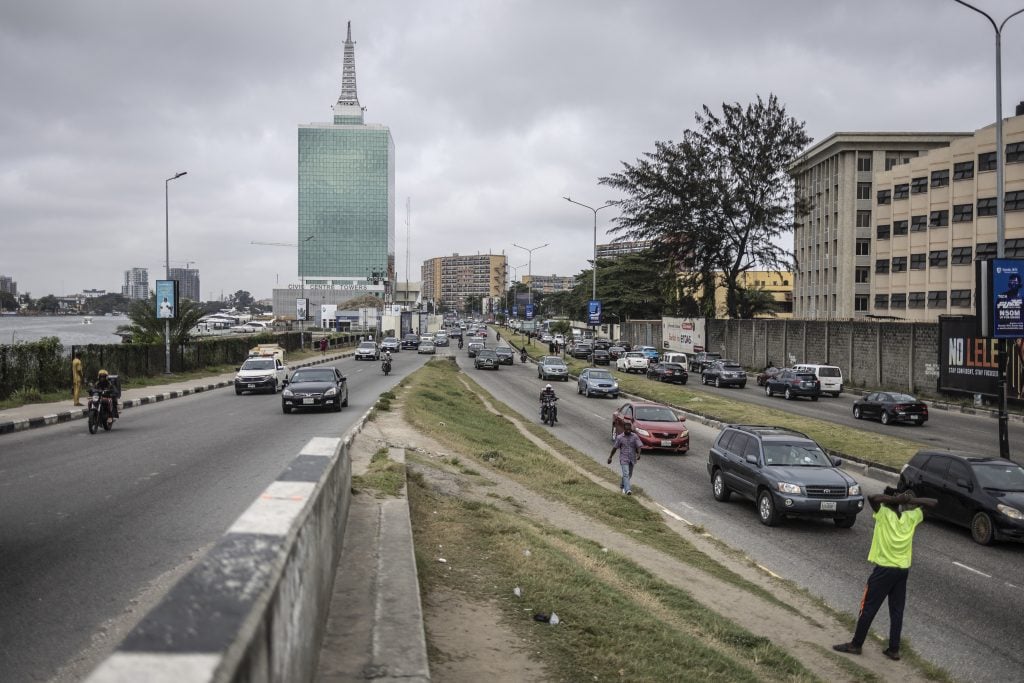
Oil in retreat
An increasing shift away from oil is evident in the economic data. Petroleum contributed just 5.85% of GDP in 2024, despite Nigeria’s position as one of Africa’s top oil producers. This left oil lagging behind crop production, trade, real estate and telecommunications. A large share of economic activity remains informal, accounting for as much as 42.5% Nigeria’s GDP.
Oil exports, which used to be the source of most government revenue and foreign exchange earnings, have continued to struggle, plagued by continuing unrest, sabotage and large-scale theft in the main oil-producing Niger Delta.
Though the 2025 budget was based on exports of 2.06m barrels daily at $75 per barrel, neither the volume nor price targets were met. That forced the government to rely more on borrowing and increased taxation. In the first quarter, oil production grew only 1.87%, with a still dwindling 3.97% share of the GDP.
Global oil prices remain subdued amid a tough global economy defined by trade tariffs imposed by the US. Brent crude is trading at around $67 a barrel. Still, Nigeria met its revenue target for the year in August from mainly non-oil sources, President Tinubu declared at a 2 September meeting with top officials of the ruling APC in Abuja. With the economy now stable and safe from external shocks “we have no fear of whatever Trump is doing,” he insisted.
Nigerian exports to the US are subject to a 15% tariff though oil exports remain exempt.
One obvious beneficiary of Tinubu’s market liberalisation has been the country’s oil refining sector, which needed market-determined pricing to thrive. The 650,000-barrels-per-day Dangote Refinery, owned by Africa’s richest man, Aliko Dangote, is approaching full capacity, disrupting old global supply chains and slashing fuel imports for domestic use.
Tinubu also resolved the impasse that held up some onshore divestment transactions by oil majors and improved fiscal terms for their deep offshore investments. Shell has pledged as much as $5bn in new deep-water funding, and TotalEnergies recently signed a $1.5bn deal for a production-sharing contract to explore two new offshore fields.
Brazilian oil giant Petrobras, which sold off its Nigerian assets in 2020, has indicated that it plans to return following Tinubu’s recent state visit to the South American country. The efforts are aimed at ramping up Nigeria’s oil-export revenue, which is critical for stabilising the exchange rate and inflationary pressures.
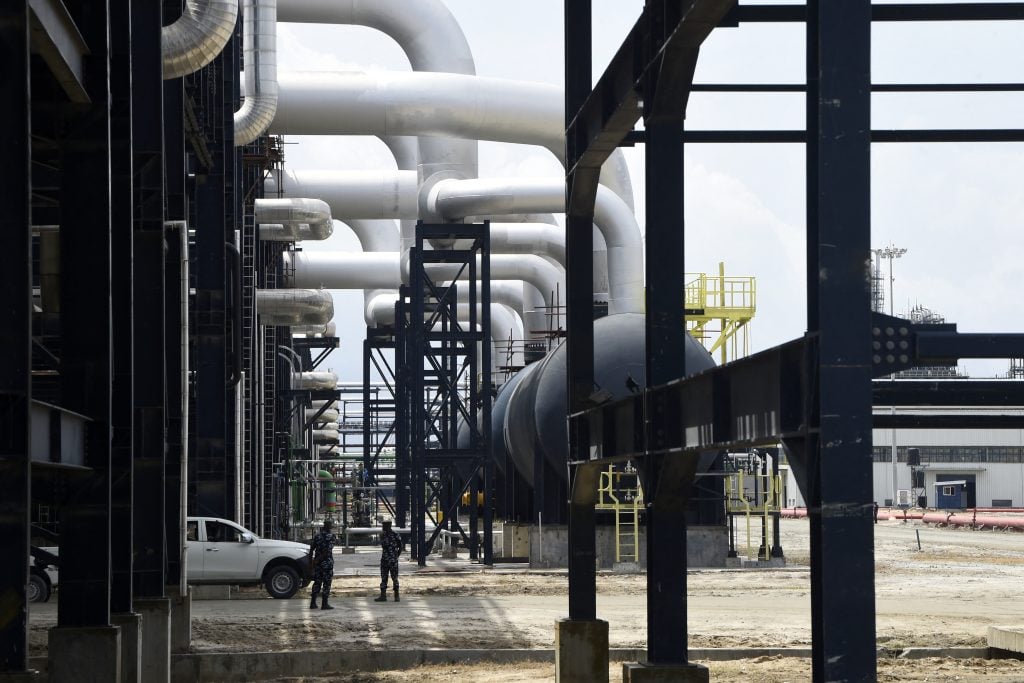
‘Hot money’ or real investments?
Opponents argue that the results touted by Tinubu’s reforms were achieved at a significant cost to society and the economy.
With the end of fuel subsidies and the floating of the exchange rate, Nigeria’s annual inflation rate surged to the highest in almost three decades. It has, according to the Central Bank of Nigeria (CBN), fallen somewhat to 20.33% in August, the last month for which numbers were available. But tighter money supply is also an issue. Tinubu’s appointee at the CBN, Olayemi Cardoso, led monetary policy into a tightening cycle. A series of interest-rate hikes left the benchmark rate at a record 27.5% by the end of 2024.
While banks, institutional and other money market investors gained from the high rates, other sectors such as manufacturing and agriculture have struggled to access capital at the prevailing high interest rates. Nigeria instead saw a surge of foreign capital chasing high yields in its money market. Capital imported into the country rose 67% year-on-year in the first quarter of this year to $5.64bn, according to official data. A breakdown reveals that more than 92% of the inflows went into portfolio investments. Indeed, an overwhelming $4.2bn or 80.9% was invested in high-yielding Open Market Operations (OMO) bills and in Treasury bills. Only 16.8% or $877.41m was invested in bonds, while a paltry $117.33m (2.3%) went into the stock market.
Investments in OMO and Treasury bills jumped 162% from the previous year, while investments in bonds increased twofold.
Stocks recorded a 138% increase. Foreign direct investment flows saw year-on-year growth of 5.97% to $126m, which represents a 70% decline from the fourth quarter of 2024.
In other words, while Tinubu’s reforms have drawn an influx of short-term funds chasing quick gains, fewer investors are willing to commit to longer-term foreign direct investments, indicating shaky levels of investor confidence.
Prominent opposition leader Peter Obi, who challenged Tinubu in the 2023 elections, said Nigeria’s share of foreign direct investment was paltry in a year Africa received more than $100bn in such long-term investment flows.
“With such a high proportion of capital importation flowing into speculative investments, the impact on industrial growth or job creation is highly insignificant and elusive, given the ease with which such ‘hot money’ can exit the economy,” Obi said. “There is no better confirmation of the lack of trust in this government, whose reforms remain uncoordinated and largely reactive.”
The impact of Tinubu’s reforms on job creation remains to be fully ascertained. Three years ago, Nigeria’s unemployment rate was officially at 33%. Figures released by the National Bureau of Statistics (NBS) in November 2024 showed the rate of unemployment plummeting to 4.3% – after a change of formula by the statistics office.
In the past, the NBS counted only people aged between 15 and 64 years who worked at least 20 hours a week as employed. Now anyone 15 years and above who works “for pay or profit” is considered employed – with the statistics office applying International Labour Organization guidelines.
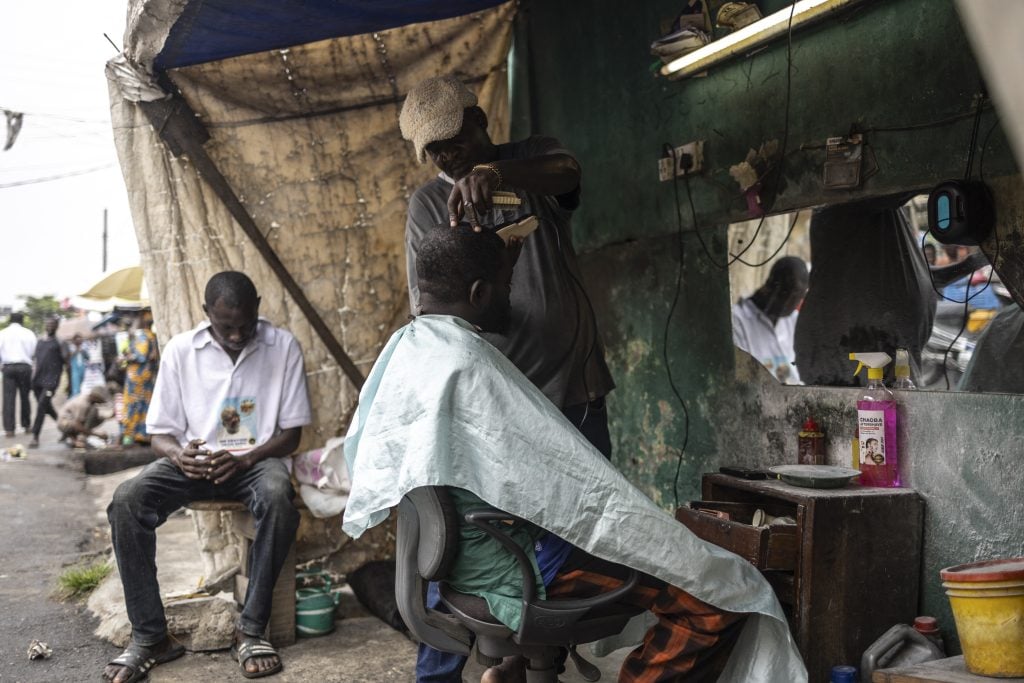
Cash for local government
An obvious benefit of ending subsidies and devaluing the naira was that it freed up cash both at the federal and regional levels. In many states across the country, new infrastructure projects have sprung up, especially road and urban renewal projects.
At the same time, there have allegations of government extravagance, even as a spike in inflation has pushed poorer Nigerians further into poverty. Ministers, state governors and lawmakers have been accused of undue opulence in a country rarely known for personal restraint.
The United States diplomatic mission in Nigeria waded into the discourse by highlighting separate reports about expenditures at government lodges at the expense of health, education and other essentials while people are being asked to endure austerity.
“Such alleged lack of fiscal responsibility fuels inequality and erodes public trust,” the Embassy commented.
The opposition seized on the comments to pile on more criticism of profligacy against the Tinubu administration. Former vice president Atiku Abubakar, the runner-up in the last election, has said the reforms were an exercise in “trial and error” with unrealistic expectations.
Abubakar said the cut in fuel subsidies was too abrupt, and that he would have fought the corruption in the subsidies system while retaining necessary spending.
There have also been concerns at the government’s borrowing habits. From the time he took office in 2023 to the end of the first quarter of 2025, Nigeria’s public debt rose 23% to 149.39 trillion naira ($100bn) from 121.7 trillion naira ($81.4bn). While local debt accounted for 53%, foreign debt accounted for 47%, with the debt-to-GDP ratio reaching 52% and exceeding the official limit of 40% set by the fiscal responsibility law.
“This breach of our debt limit signals the strain on fiscal sustainability,” Tajudeen Abbas, the speaker of the House of Representatives, said recently. “It highlights the urgent need for stronger oversight [and] transparent borrowing practices.”
Cautious optimism
The International Monetary Fund (IMF) commended the Tinubu administration for his reforms at the end of its latest Article IV Consultation with Nigeria, a regular health check on the country’s economy. It said that the reforms “have improved macroeconomic stability and enhanced resilience”. The report noted that the changes “have yet to benefit all Nigerians” and called for more prudent use of resources.
World Trade Organization director general Ngozi Okonjo-Iweala, a former Nigerian finance minister, also commended Tinubu for his bold reset of the economy during a recent courtesy visit – but noted the need for a social safety net for the most vulnerable.
While the government has taken these as endorsements, critics are highlighting what they say is worsening poverty and challenging the government to show the benefits of its reforms on the ordinary people.
“As Tinubu begins to gear up for re-election in early 2027, there is one crucial question that will likely confront him from voters,” says Orji, the economic analyst. “And that will be to show them how the reforms have benefited them.”
Want to continue reading? Subscribe today.
You've read all your free articles for this month! Subscribe now to enjoy full access to our content.
Digital Monthly
£8.00 / month
Receive full unlimited access to our articles, opinions, podcasts and more.
Digital Yearly
£70.00 / year
Our best value offer - save £26 and gain access to all of our digital content for an entire year!

 Sign in with Google
Sign in with Google 